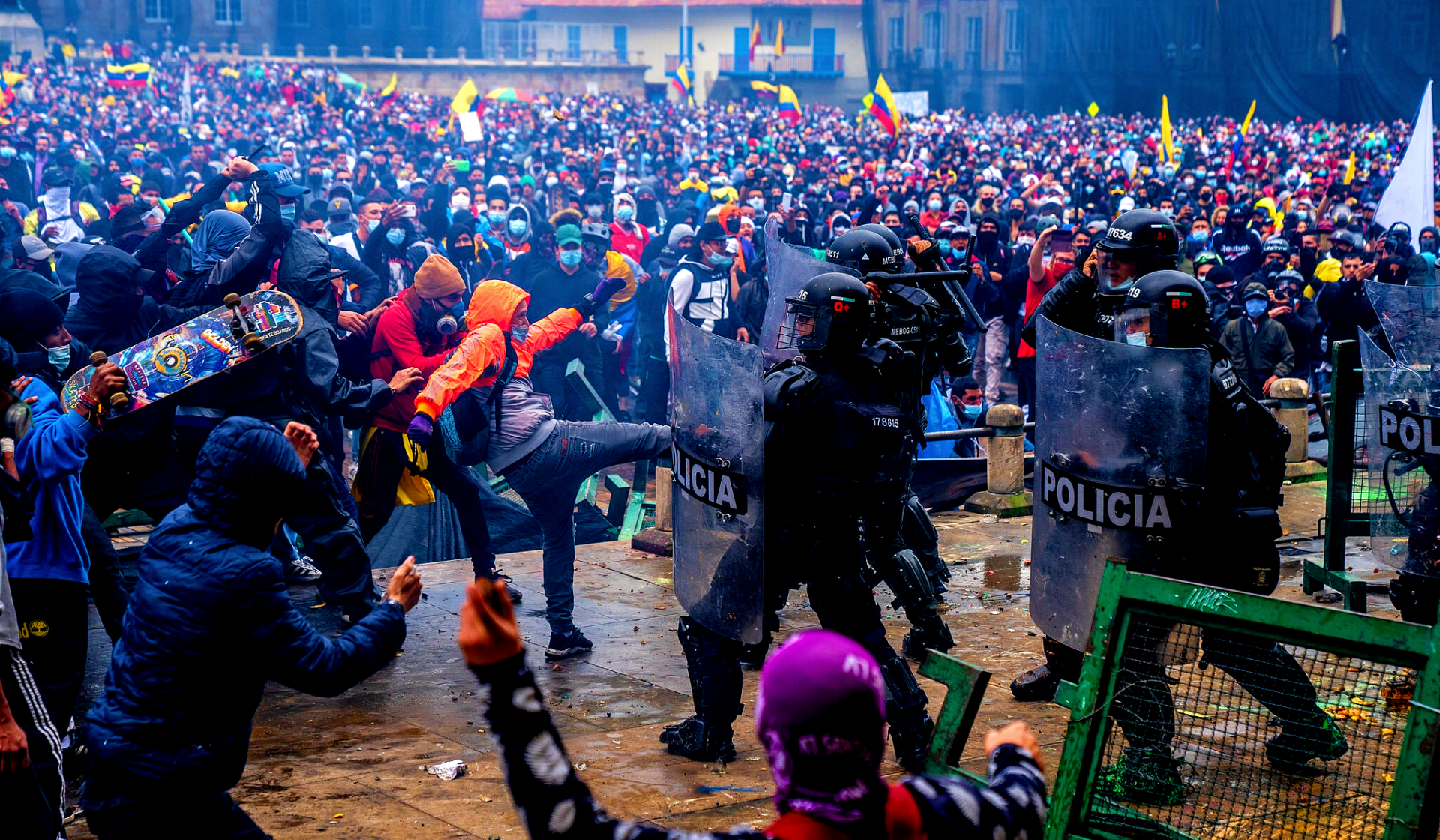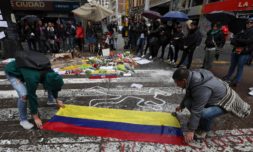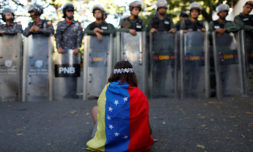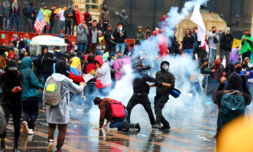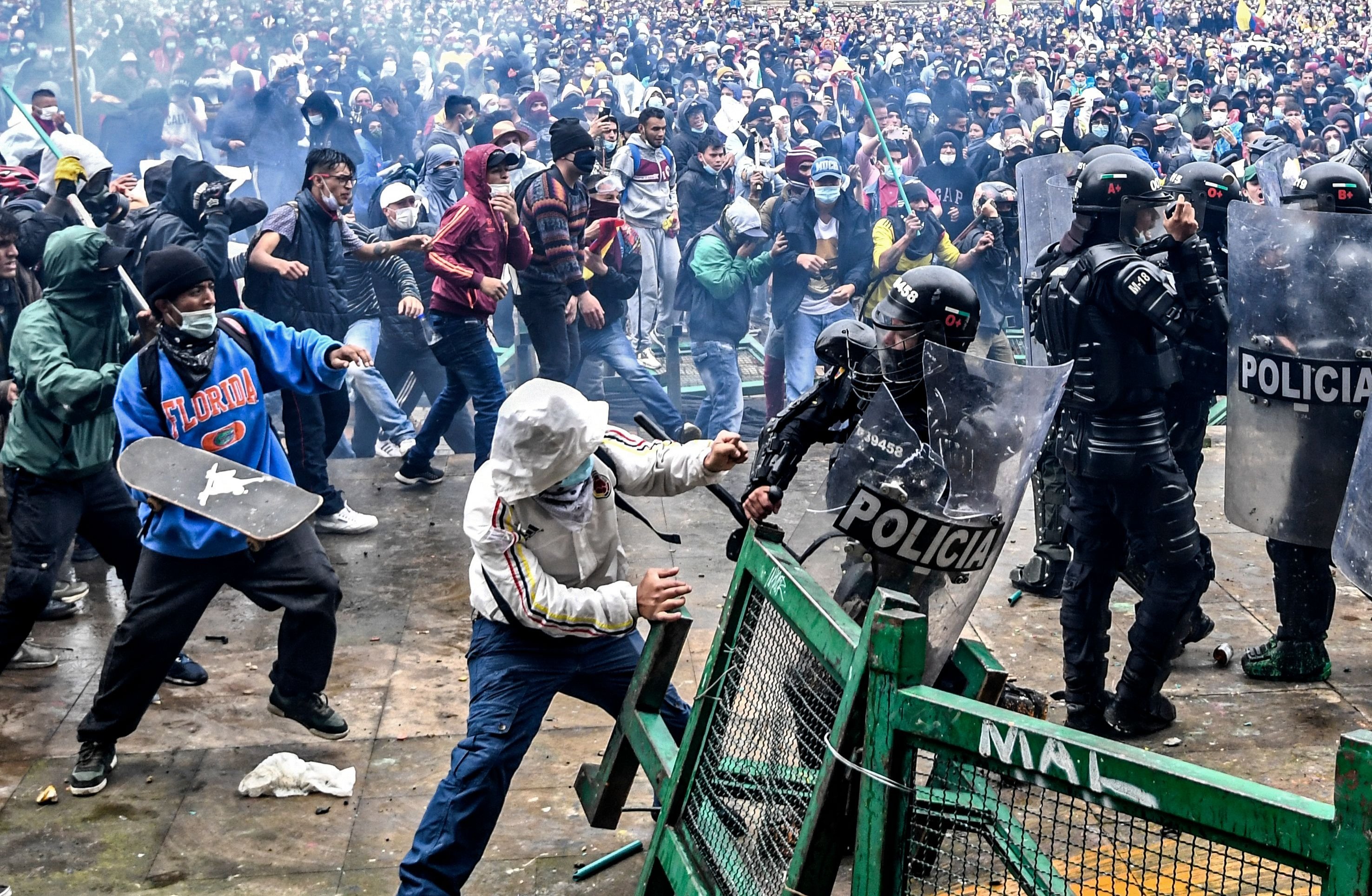The country is bracing for further unrest as citizens protesting a proposed tax overhaul tied to the pandemic face unnecessary violence at the hands of law enforcement officials.
Protests against President Iván Duque’s controversial ambitions to raise taxes in Colombia have turned deadly.
Intended to fill a pandemic-related fiscal hole and mitigate the country’s economic crisis, the now shelved reform would have lowered the threshold at which individual salaries are taxed, affecting anyone with a monthly income of 650+ USD.
It would also reduce health and education budgets yet leaving the military’s intact.
Perhaps most problematic of all, however, is that VAT was to be applied to previously tax-free food staples like coffee, milk and eggs, as well as pharmaceuticals and sanitary products.

While Colombia has been confronted with profound transformations and challenges in recent years that its government is seeking to tackle – from expanding demographics and the influx of almost two million Venezuelans to post-conflict financing and a rise in new criminal organisations – 42.5% of the population is now classified as poor, one of the devastating repercussions of Covid-19 in the country.
Another evidently being the fact that coronavirus has, to date, claimed over 75,000 lives with the latest daily fatalities breaking Colombia’s own records.
Amid a ruthless third wave, the strikes are underscoring the destabilising impact of this.
A bill of this nature would, as a result, financially cripple the already struggling general public. It’s for this reason that so many have taken to the streets in opposition.

Morphing into a national outcry over rising poverty, unemployment, and inequality, the largely peaceful demonstrations have since been met with a significantly violent police reaction and Colombia is now bracing for further unrest.
‘This is one of those moments where a key break in society is happening,’ urges director of Colombia Risk Analysis, Sergio Guzmán. ‘And people are fed up and waking up to the power of the streets.’
So far, at least 800 people have been injured and 19 killed, more than 400 arrested for ‘vandalism’ with countless others reported as missing – but these figures are thought to be considerably higher.
Videos circulating on social media show scenes reminiscent of a war zone with police deploying tear gas, firing at protestors from point-blank range, bashing them with shields or clubs, and charging at crowds with motorcycles.
‘It’s like the police are waiting for night to fall so they can roll up and start shooting indiscriminately,’ said one community leader in a poor Cali neighbourhood that’s been repeatedly raided by riot squads. ‘Bodies are going to pile up, the dead on top of the dead.’
The dead include 17-year-old aspiring artist Nicolás Guerrero who was shot in the head on Saturday as cameras rolled. Footage of the tragic incident has been shared innumerable times online, prompting the United Nation’s human rights office (OHCHR) to express its concern.









